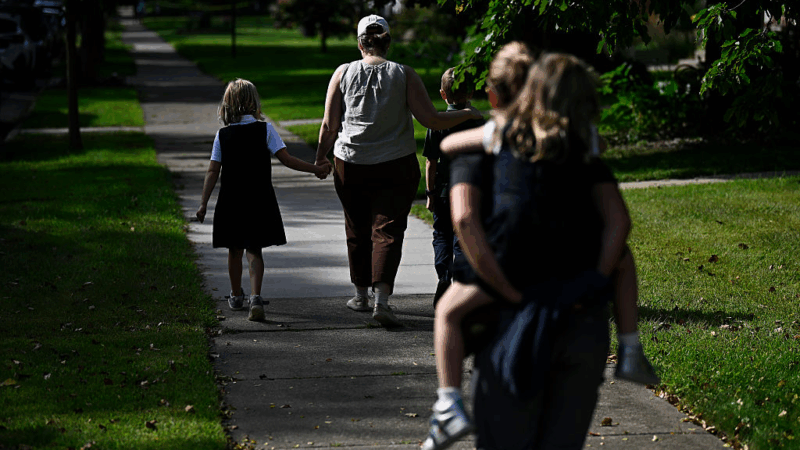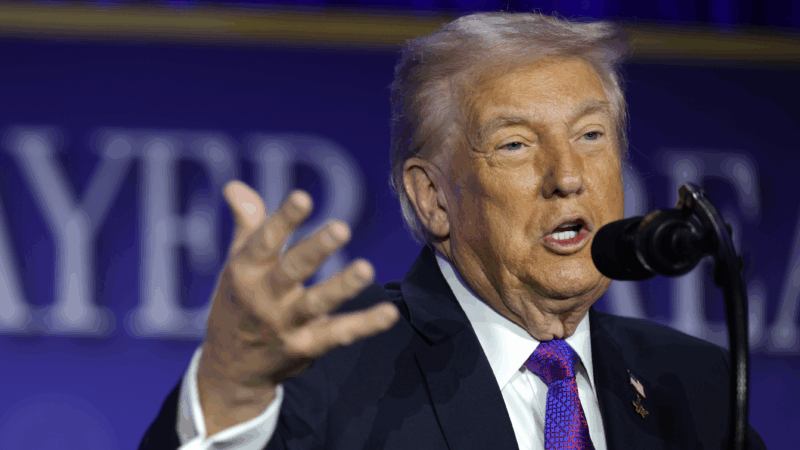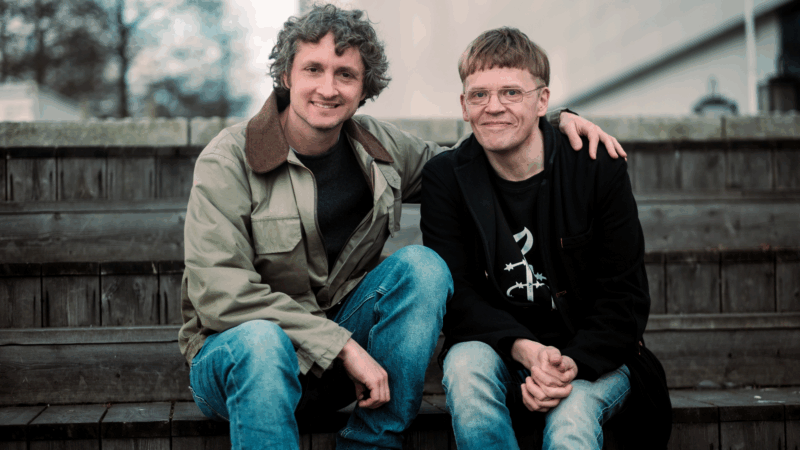Talking to kids about school shootings. Be truthful and follow their lead
It won’t happen here. Not at your school. These are the kinds of reassurances that parents want to give their children when something as horrific as a school shooting happens. But here’s the problem in the United States: It could happen.
School shootings have risen sharply in recent years, according to data from the American Academy of Pediatrics. According to an analysis from CNN, there have been 44 school shootings this year. The Washington Post has collected data showing more than 400 school shootings since the Columbine High School shooting in Colorado in 1999.
And every time a school shooting happens, like in Minneapolis on Wednesday, parents and teachers struggle to calm children’s anxieties. So what should you say to children when a shooting happens?
Start by asking your child what they’ve heard, says David Schonfeld, a pediatrician who directs the National Center for School Crisis and Bereavement at Children’s Hospital Los Angeles.
“Children’s questions may be very different from adults’,” Schonfeld says. And the best way to determine how much information they need is to listen to them.
“Before we can offer reassurance or help them with what’s bothering them, we have to understand what their actual concerns are,” Schonfeld says. His group has developed guidelines for talking to children after a tragic event.
Kids often ask who is to blame, what could have been done to prevent the tragedy or could it happen at my school? Truthful answers are important to build trust. And the unfortunate answer is that although school is typically a safe place, there are risks.
“We can help kids learn to cope with the distress that they feel when they recognize inherent dangers that are part of the world,” Schonfeld says.
A child’s age will determine how much information to share, but that’s not the only factor. Their emotional reaction may be linked to how much trauma they’ve experienced in the past or how closely they’re connected to a tragedy. If victims were their peers, the event will take a stronger emotional toll than it will with children who hear about the shooting in the news. Regardless, it will take time for parents to comfort children and help them process such tragic events.
“We need to be patient, and sometimes especially young kids need to have these conversations over and over,” says Melissa Brymer, director of terrorism and disaster programs at the UCLA-Duke University National Center for Child Traumatic Stress. “When we don’t open up the door, we as adults make it like a taboo topic,” she says.
The American School Counselor Association has gathered a list of resources and tips to help after a school shooting. At the top is the recommendation to keep routines in place. Even if kids are anxious or fearful, there’s a benefit to going to school and maintaining daily activities. As the organization explains in its guide, “Kids gain security from the predictability of routine.”
The organization says it’s also helpful to limit how much media you and your children take in, whether it’s social media, radio, TV or reading news online. In a crisis, the main reason to watch, listen or read media coverage is to understand what’s happening. “But if you’re just watching the same coverage over and over again and it’s not helping you learn anything new that’s important to you and your family, then you probably should disconnect,” says Schonfeld.
In the days and weeks that follow a tragedy, parents should talk to their children about how to cope when they feel concerned or anxious. There are some really good books out there to have those conversations around, Brymer says. She recommends Once I Was Very Very Scared, by Chandra Ghosh Ippen, for the preschool set. In the story, lots of animals go through scary experiences, but each reacts differently and has its own way of coping. Brymer says books like this can assist parents and caregivers in helping children figure out the strategy that works best for them.
For parents of older children, another strategy is to help them convert feelings of anger or anxiety into action. Schonfeld says it’s natural to be angry and want to blame someone after a school shooting. But if kids direct their anger at an individual who acted in hatred — such as the shooter — it doesn’t take away grief or solve the problem. Anger can beget anger.
An alternative approach is to get involved in initiatives to address gun violence. For example, students at Marjory Stoneman Douglas High School in Parkland, Fla., began pushing for gun control after the 2018 mass shooting there.
“It didn’t solve the problem, but it did make a difference,” says Schonfeld. The students have been effective advocates in bringing attention to gun violence.
“So I think, yes, kids can be part of the solution, but the adults have to be a big part of the solution, too,” he says.
The bottom line, Schonfeld says, is to keep having conversations with your kids. “If you talk to children about these types of events, it really sets you up to be able to talk with them about other difficult events in your life in the future,” he says.
“And it makes it more likely that they’re going to come to you when there’s something that they’re worried about or upset about, because they know you can talk about it.”
There’s a lot of uncertainty in these situations. But one thing we do know, says Schonfeld: Difficult conversations will always be a part of life.
Trump calls SCOTUS tariffs decision ‘deeply disappointing’ and lays out path forward
President Trump claimed the justices opposing his position were acting because of partisanship, though three of those ruling against his tariffs were appointed by Republican presidents.
The U.S. men’s hockey team to face Slovakia for a spot in an Olympic gold medal match
After an overtime nailbiter in the quarterfinals, the Americans return to the ice Friday in Milan to face the upstart Slovakia for a chance to play Canada in Sunday's Olympic gold medal game.
NASA eyes March 6 to launch 4 astronauts to the moon on Artemis II mission
The four astronauts heading to the moon for the lunar fly-by are the first humans to venture there since 1972. The ten-day mission will travel more than 600,000 miles.
Skis? Check. Poles? Check. Knitting needles? Naturally
A number of Olympic athletes have turned to knitting during the heat of the Games, including Ben Ogden, who this week became the most decorated American male Olympic cross-country skier.
Police search former Prince Andrew’s home a day after his arrest over Epstein ties
Andrew Mountbatten-Windsor, the British former prince, is being investigated on suspicion of misconduct in public office related to his friendship with the late convicted sex offender Jeffrey Epstein.
Violinist Pekka Kuusisto is not afraid to ruffle a few feathers
On his new album, the violinist completely rethinks The Lark Ascending by Ralph Vaughan Williams, and leans into old folk songs with the help of Sam Amidon.








